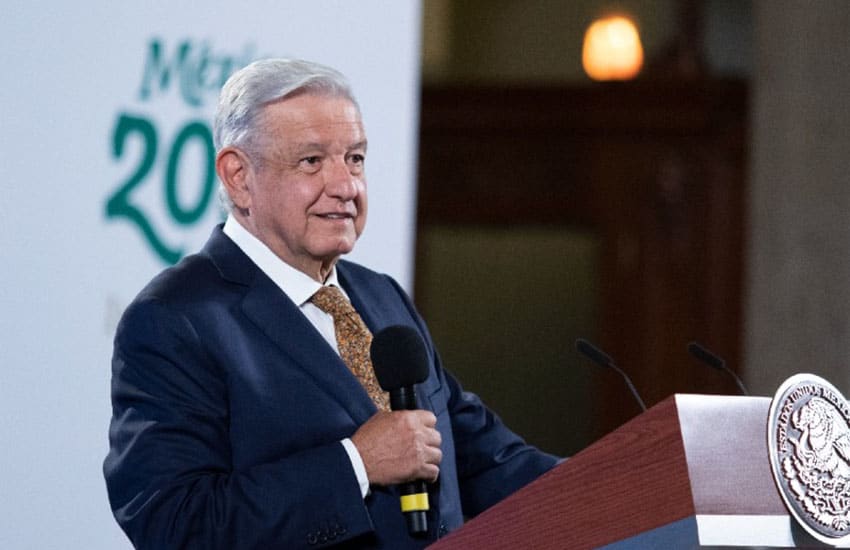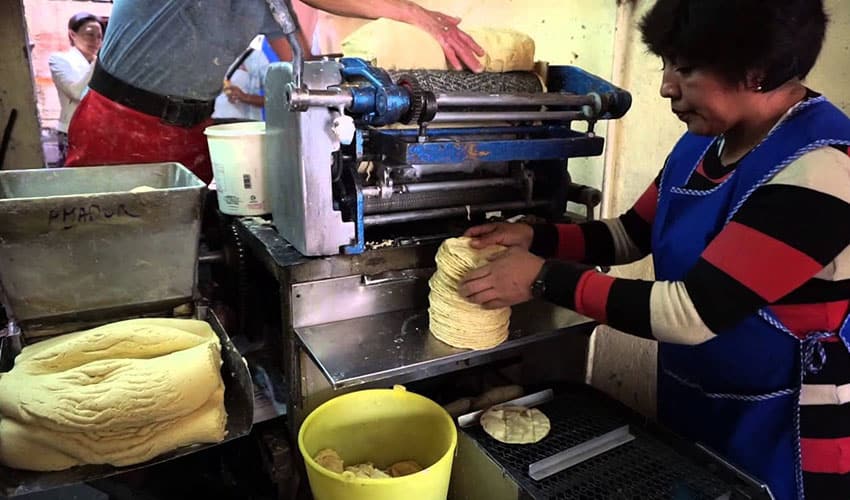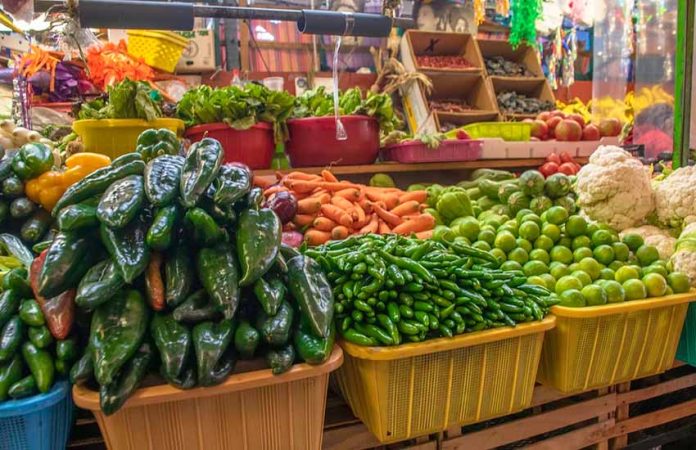Fueled by soaring food prices, annual inflation reached 8.7% in August, the highest level in more than two decades.
The national statistics agency INEGI said Thursday that consumer prices increased 0.7% in August compared to July, lifting the annual inflation rate to its highest level since December 2000, when the rate was 8.96%.
Core inflation, which strips out some volatile food and energy prices, was 8.05% in August, INEGI said.
Food and nonalcoholic beverages were 14.2% more expensive in August compared to the same month a year earlier, while energy costs, including gasoline and electricity, were up 8.1%. Within the former category, prices for fruits and vegetables and for meat rose at an even faster rate, with annual inflation rates of 15.2% and 14.7%, respectively.

Onions are particularly problematic: their price soared 54% between July and August and almost 101% in annual terms.
Among the other individual food items whose cost rose sharply in the 12 months to August were potatoes (+74%), oranges (+44%), watermelon (+39%), eggs (+33%), white bread (+29%), limes (+24%) and fish (+15).
Prices for non-food goods were 7.9% higher in August compared to a year earlier, while services in general were 5.2% more expensive. Housing was 3.1% more expensive, clothing and footwear rose 5.6%, alcohol and tobacco prices were 8.9% higher and restaurant and hotel bills were up 10.9%.
President López Obrador said Wednesday that his greatest concern with regard to inflation was the increase in the cost of tortillas, a staple across the country. INEGI data showed that prices for corn tortillas rose 2.4% between July and August, with the average cost of a kilo just above 21 pesos in tortillerías, or tortilla shops.
In May, López Obrador presented a six-month plan to curb inflation without resorting to price controls. However, the prices of most basic products have continued to rise, leading the president to declare Wednesday that the inflation-busting plan – an initiative of the government and the private sector – would be strengthened.
He said he raised the inflation issue during a meeting Tuesday with the heads of the influential Business Coordinating Council and Mexican Business Council.
“We’re going to strengthen the anti-inflationary plan because [higher prices] affect people, and it’s what concerns me most and occupies my time,” López Obrador said.
The president – who said in late July that he expects inflation to begin to ease in October or November – personally pledged to speak to the owners of Maseca and Minsa, corn flour suppliers that together form a duopoly.

The high inflation rate recorded in August raises expectations for another hefty interest rate rise when the board of the central bank meets later this month. The Bank of México (Banxico) lifted its benchmark rate by 0.75% after each of the board’s two most recent meetings, the largest increases since the introduction of a new monetary policy regime in 2008.
Its key rate is currently 8.5%, the highest level since the new regime was implemented. Banxico, whose board will meet to discuss monetary policy on September 29, noted last month that inflationary pressures associated with both the pandemic and the military conflict in Ukraine were continuing to affect headline and core inflation.
It said it would continue to monitor inflationary pressures as it seeks to set a benchmark rate that will allow inflation to come down to its 3% target “within the time frame in which monetary policy operates.”
With reports from El Universal, Excélsior, Infobae, El Financiero and El Economista
